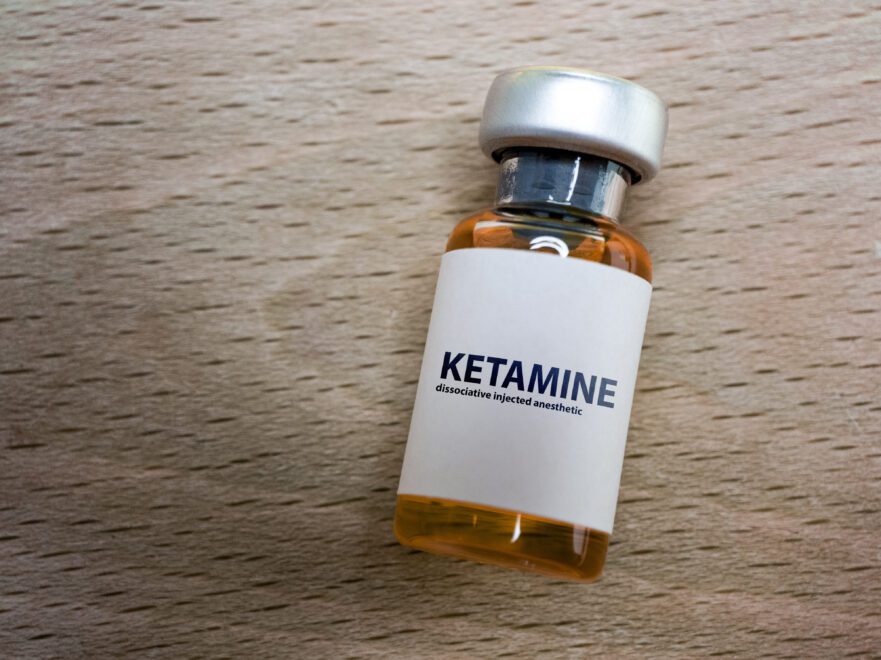
Suicidal Ideation: It May be Your Medications

Suicidal Ideation: It May be Your Medications

Suicidal Ideation: It May be Your Medications
Share
on this page:
Shortly after she was diagnosed with psoriatic arthritis, Sarah Lawrence was prescribed Otezla (apremilast). In less than two months after beginning the drug treatment, she says, she started experiencing suicidal ideation. “The thoughts were so intense and so different from my normal thought process, I knew something was horribly wrong.”
Neither she nor anyone in her family has a history of mental illness or suicide. Once she stopped using the drug, it took only a few days for the suicidal thoughts to dissipate. She considers herself lucky in that she was able to recognize the thoughts as a drug side effect.
“My experience with Otezla surprised me, because I had no history of depression or suicidal ideation,” she adds. “If others taking this drug suffer from existing mental health issues, I could see how the side effect might be overwhelming and potentially life-threatening. That I realized what was happening and got support as the thoughts were clearing likely saved my life.”
Suicide rates have been increasing for nearly two decades, and debates have popped up about how certain drugs — like antidepressants or even antiepileptics — might affect your risk for it, either up or down. With some conditions, it’s difficult to tease apart the effects of the treatment from the underlying effects of illness. In other cases, like when 11-year-old Nicholas suffered from depression and anxiety after taking Singulair, an allergy medication, patients may be shocked to learn that a drug they thought was treating something totally unrelated to their brains could have mood-altering effects.
In a study, Robert Gibbons, PhD, a biostatistician at the University of Chicago and his team used sophisticated statistical analyses to determine which of 922 drugs were associated with an increased or decreased risk of suicide. They found that 10 were linked to a greater suicide risk, and 44 with a lesser one. Some of the findings were surprising, for example, says Gibbons. One is that the popular vitamin folic acid appeared to lower the risk of suicidal ideation.
“It can be difficult to differentiate whether it is the medication or other chronic mental health issues that may be causing suicidal thoughts,” says Brian Wind, PhD, a clinical psychologist at JourneyPure, an addiction treatment center. “Health professionals will typically adjust the dosage or prescribe another medication if they assess that the medication consumed is potentially a cause for suicidal thoughts.”
Researchers who studied sleeping medications suggest that patients ask family members to be extra vigilant, by monitoring their loved ones for sleep walking or changes in behavior during the first week or so of taking a new drug. “These medications can have a rare paradoxical effect [similar to] alcohol, where people start behaving completely out of character,” says W. Vaughn McCall, MD, MS, a psychiatry professor in the Medical College of Georgia at Augusta University in a press release. “Instead of calming, they [the drugs] may hyperstimulate. Instead of being relaxed, patients become fearful. So it goes the opposite way. We don’t know why, and we can’t pick these people out in advance.”
Antidepressants come with a black box warning about the threat of suicide. The warning has been controversial since the FDA added it in 2004, a year after Kim Wictzak tells MedShadow that Zoloft — an antidepressant prescribed to treat her husband’s insomnia — instead led to his death by suicide.
For obvious reasons, this factor can be troubling to patients and families struggling with depression. While it’s a real danger for some patients, the study shows that, overall, the drugs were associated with a lower risk of suicide. “A large number of medications used to treat mental health disorders (depression, bipolar disorder, psychosis) were associated with decreased risk of suicidal behavior providing reassurance to clinicians and patients about the effectiveness and safety of these drugs in suicidal patients,” Gibbons tells MedShadow.
The drugs associated with an added risk for depression and suicidal thoughts are:
- Fioricet (Butalbital/acetaminophen/caffeine)
- Vicodin (Acetaminophen/Hydrocodone/Bitartrate)
- Alprazolam
- Azithromycin
- Carisoprodol
- Codeine Phosphate/Promethazine Hydrochloride
- Cyclobenzaprine Hydrochloride
- Diazepam
- Prednisone
- Promethazine Hydrochloride
The drugs associated with a lower risk for depression and suicidal ideation are:
- Acamprosate Calcium
- Amlodipine Besylate
- Aripiprazole
- Asenapine
- Benztropine Mesylate
- Buprenorphine/Naloxone
- Bupropion Hydrochloride
- Buspirone Hydrochloride
- Carbamazepine
- Citalopram Hydrobromide
- Clonidine Hydrochloride
- Clozapine
- Desvenlafaxine
- Disulfiram
- Divalproex Sodium
- Doxepin Hydrochloride
- Duloxetine Hydrochloride
- Escitalopram Oxalate
- Fluoxetine Hydrochloride
- Folic Acid
- Gabapentin
- Guanfacine Hydrochloride
- Haloperidol
- Hydroxyzine Hydrochloride
- Hydroxyzine Pamoate
- Lamotrigine
- Lisinopril
- Lithium Carbonate
- Lurasidone Hydrochloride
- Mirtazapine
- Naltrexone
- Olanzapine
- Oxcarbazepine
- Paliperidone
- Pantoprazole Sodium
- Perphenazine
- Prazosin Hydrochloride
- Propranolol Hydrochloride
- Quetiapine Fumarate
- Risperidone
- Sertraline Hydrochloride
- Trazodone Hydrochloride
- Venlafaxine Hydrochloride
- Ziprasidone Hydrochloride
JourneyPure’s Wind emphasizes that it’s important to pay attention to how you feel within the first week or two after starting a new treatment. “Sometimes there may be an adjustment period, where the patient feels constantly fatigued or brain fog after starting on a new course of medication; effects should subside within the first two weeks,” says Wind.
Another study suggests that it’s more than just which drugs you’re taking — but how many — that could influence your tendency toward depression. The study, published in JAMA, reports that 15% of adults who simultaneously used three or more medications that listed depression or suicidal ideation as possible adverse effects experienced depression compared to 7% of those taking just one medication and 9% of those using two of the drugs. The study did not cover those on antidepressants.
The most commonly used drugs that list depression as a potential adverse effect, according to the JAMA study, were antihypertensives (blood pressure-lowering drugs), proton-pump inhibitors (like Omeprazole for acid reflux), analgesics and hormonal contraceptives. More often than not, if a patient was prescribed a combination of drugs with the potential to cause depression, that mixture included antihypertensives and proton-pump inhibitors.
Suicidal thoughts should never be ignored.
If you or someone you know is thinking about suicide, immediately call the confidential toll-free National Suicide Prevention Lifeline at 1-800-273-TALK (8255), available 24 hours a day, 7 days a week, in English and Spanish.
- Qato, D. M., Ozenberger, K., & Olfson, M. (2018). Prevalence of Prescription Medications With Depression as a Potential Adverse Effect Among Adults in the United States. JAMA, 319(22), 2289.
- Brauer, G. (2019, August 14). Prescription sleep aids carry a rare suicide risk, review finds – AU/UGA Medical Partnership. AU/UGA Medical Partnership
- Vaughn McCall – Faculty Profile. (n.d.). Vaughn McCall – Faculty Profile.
- | Public Health Sciences | The University of Chicago. (n.d.).
- Fornaro, M., Anastasia, A., Valchera, A., Carano, A., Orsolini, L., Vellante, F., Rapini, G., Olivieri, L., Di Natale, S., Perna, G., Martinotti, G., Di Giannantonio, M., & De Berardis, D. (2019). The FDA “Black Box” Warning on Antidepressant Suicide Risk in Young Adults: More Harm Than Benefits? Frontiers in Psychiatry, 10
- Dreier, J. W., Pedersen, C. B., Gasse, C., & Christensen, J. (2019). Antiepileptic Drugs and Suicide: Role of Prior Suicidal Behavior and Parental Psychiatric Disorder. Annals of Neurology, 86(6), 951–961.
DISCLAIMER: MedShadow provides information and resources related to medications, their effects, and potential side effects. However, it is important to note that we are not a substitute for professional medical advice, diagnosis, or treatment. The content on our site is intended for educational and informational purposes only. Individuals dealing with medical conditions or symptoms should seek guidance from a licensed healthcare professional, such as a physician or pharmacist, who can provide personalized medical advice tailored to their specific circumstances.
While we strive to ensure the accuracy and reliability of the information presented on MedShadow, we cannot guarantee its completeness or suitability for any particular individual’s medical needs. Therefore, we strongly encourage users to consult with qualified healthcare professionals regarding any health-related concerns or decisions. By accessing and using MedShadow, you acknowledge and agree that the information provided on the site is not a substitute for professional medical advice and that you should always consult with a qualified healthcare provider for any medical concerns.
on this page:
DONATE:
Help fund our fight for improved medication safety and transparency by supporting our independent journalism.
Give NowStay Informed. Sign up for our newsletters.
Independent, science-based journalism delivered directly to your inbox.
About Our Advocacy:
We seek to create a world where there are safer medications for all and where all people are fully informed about their medication benefits and side effects, using our explanatory and investigative journalism to both inform and stimulate public discussion to drive toward solutions.
WEBINARS
Want to hear expert insights about medication safety and other care options? Watch all our past webinars and sign up for upcoming ones.
WATCH Now


